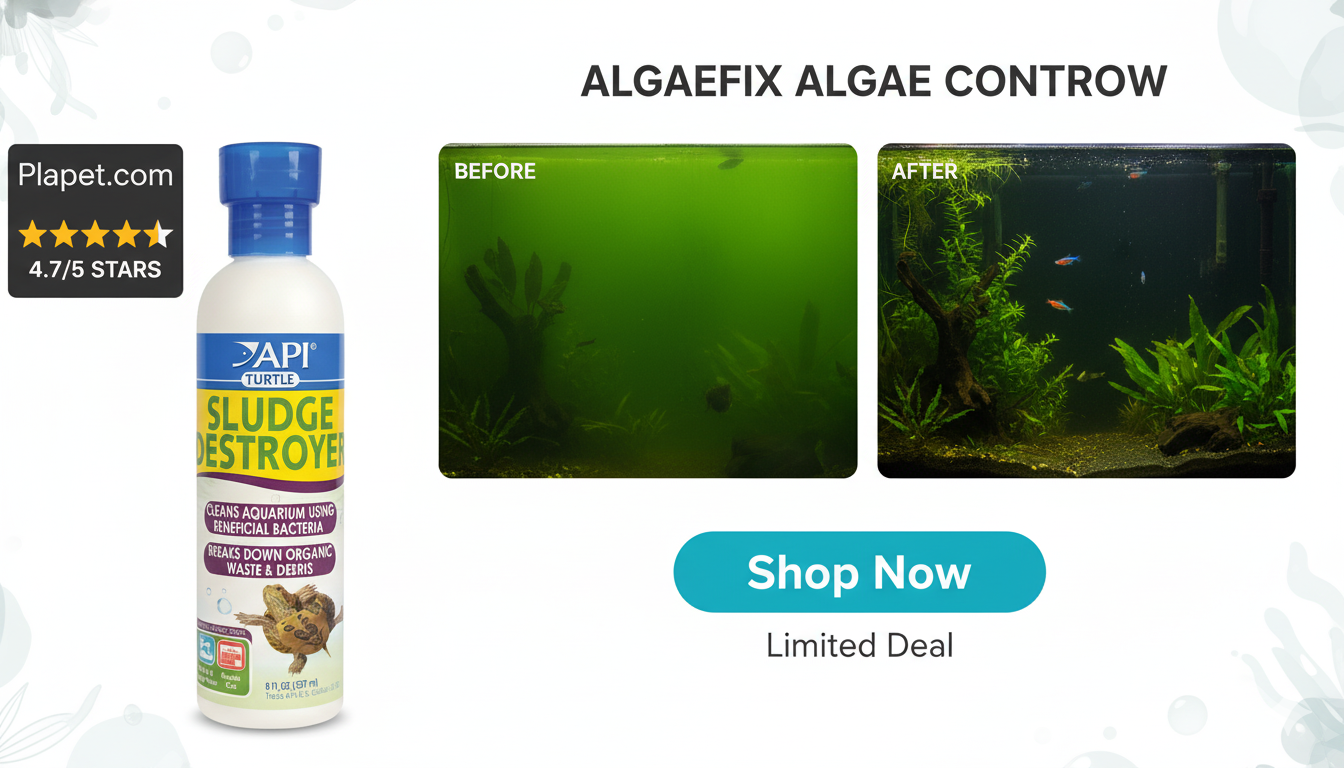API ALGAEFIX Review: Fast & Effective Algae Control

Estimated reading time: 9 minutes
Key Takeaways: Our API ALGAEFIX Review in a Nutshell
- Potent Algae Control: Highly effective against green water, string algae, and hair algae, delivering visible results quickly.
- Safety First (With a Caveat): Safe for freshwater fish and most plants when dosed correctly, but unsafe for invertebrates like shrimp and snails.
- Dual-Action Formula: Works as both a treatment and a weekly preventive measure for long-term clarity.
- Great Value: A 16-ounce bottle treats up to 1,920 gallons, making it cost-effective for ongoing use.
Table of Contents
- Beneficial bacterial
- Breaks down waste and debris
- Cleans Aquarium
Introduction: The Unending Battle Against Aquarium Algae
For aquarium keepers, algae is the most persistent enemy. Whether it’s pea-soup green water, slimy blue-green algae, or stubborn strands of hair algae, outbreaks can turn a dream tank into a murky mess. While balancing light, nutrients, and CO2 is the long-term fix, sometimes you need a fast, effective algae remover. That’s where API ALGAEFIX Algae Control comes in.
Our Verdict on API ALGAEFIX
After testing, we found API ALGAEFIX to be a fast-acting and versatile algae solution. It clears green water within 24–48 hours and significantly reduces string and hair algae within days. Its dual role as both a treatment and a weekly preventive makes it invaluable. However, it must be used with precision, and it is not safe for invertebrates like shrimp or snails. For fish-only or hardy planted tanks, it’s a trusted weapon against algae.
Key Features & In-Depth Benefits
Broad-Spectrum Algae Control
Targets green water, cyanobacteria, string algae, and hair algae—no need for multiple products.
Keeps Freshwater Aquariums Clear
Improves visibility, restores natural beauty, and supports a healthier aquatic environment.
Safe for Fish and Most Plants
Safe when dosed properly, though delicate plants may react and invertebrates are at risk.
Weekly Preventive Use
Regular maintenance dosing prevents new algae blooms and helps stabilize the aquarium.
Easy-to-Dose Liquid Formula
Comes with a measuring cap for precise dosing, making it beginner-friendly and convenient.
What We Liked
- Noticeable results within 1–2 days
- Effective against multiple algae types
- Cost-efficient (16 oz. treats 1,920 gallons)
- Straightforward dosing instructions
- Weekly preventive option for long-term clarity
Potential Drawbacks to Consider
- Unsafe for shrimp, snails, and other invertebrates
- Overdosing risks harming fish
- Doesn’t address root causes of algae (light, nutrients)
- Dead algae can reduce oxygen—surface agitation is advised
Who Is This Algae Treatment For?
Best suited for freshwater fish-only tanks or aquariums with hardy plants. It’s ideal for aquarists facing sudden algae blooms or those wanting a preventive weekly treatment. Not recommended for tanks with shrimp, snails, or other sensitive invertebrates.
Comparison to Alternative Algae Solutions
vs. Natural Methods: Clean-up crews and manual scrubbing are great for prevention but too slow for outbreaks.
vs. UV Sterilizers: UV kills free-floating algae but not attached forms. ALGAEFIX covers both.
vs. Root Cause Fixes: Long-term control requires balancing light, nutrients, and CO2. ALGAEFIX acts as a reset tool, not a replacement.
Frequently Asked Questions
Is API ALGAEFIX safe for shrimp and snails?
No, it is unsafe and often lethal for invertebrates.
How fast does it work?
Green water usually clears within 24–48 hours, while string algae takes several days.
Can I use it in a planted tank?
Yes, but only with hardy plants. Sensitive species may react poorly.
Do I need a water change after dosing?
Yes, performing a water change 2–3 days later helps remove decomposed algae and maintain oxygen balance.
Conclusion and Final Recommendation
API ALGAEFIX Algae Control is one of the most effective algae treatments available for freshwater tanks. It delivers quick results, doubles as a preventive measure, and is cost-efficient. Its main limitation is its incompatibility with invertebrates. If you keep fish and hardy plants, this is a reliable ally in the fight against algae.




